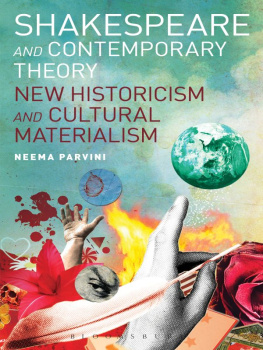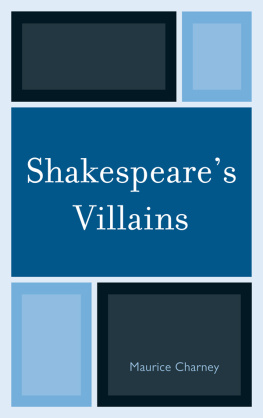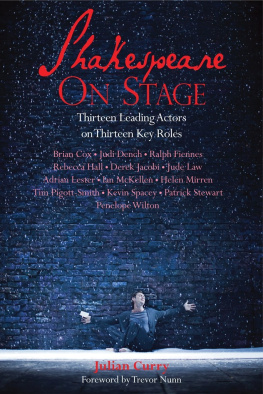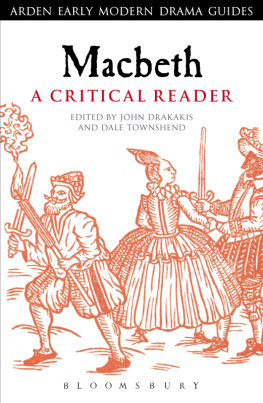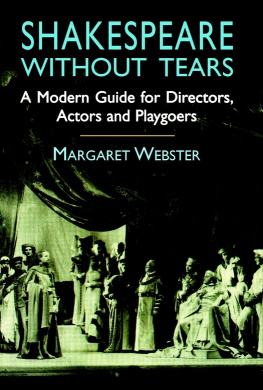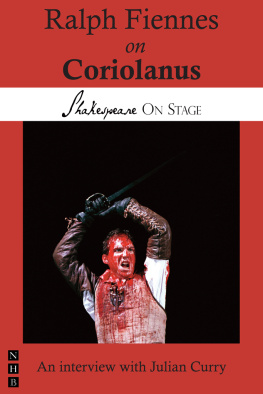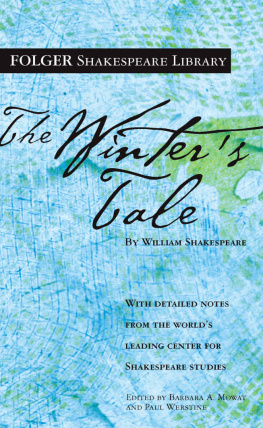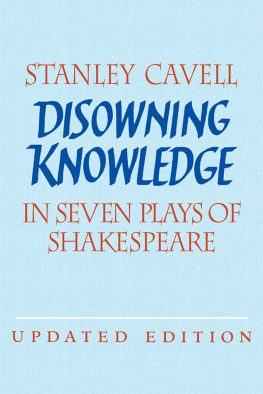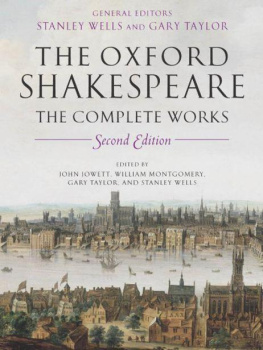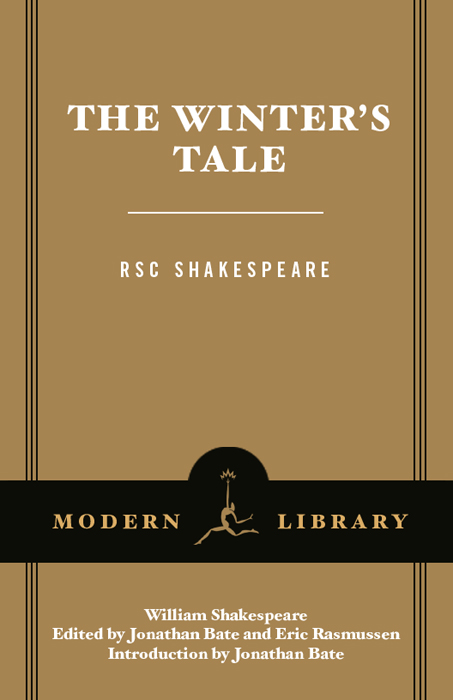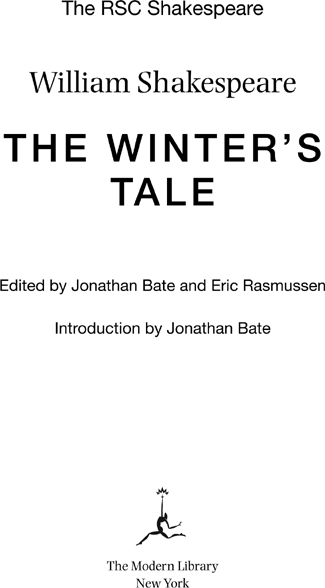INTRODUCTION
OLD TALES
In about 1590 the dramatist George Peele wrote a play called The Old Wives Tale in which an old woman is asked to tell a merry winters tale in order to drive away the time trimly. Once upon a time, she begins, as all traditional storytellers do, there was a king or a lord or a duke that had a fair daughter, the fairest that ever was, as white as snow and as red as blood: and once upon a time his daughter was stolen away. An old wives or a winters tale is like a fairy story: it is not supposed to be realistic and it is bound to have a happy ending. Along the way, there will be magic, dreams, coincidences, children lost and found. This is the style of play to which Shakespeare turned some twenty years after Peele, in the final phase of his career.
Shakespeares late plays have come to be known as romances. Although neither the dramatist himself nor the compilers of the First Folio used this generic classification, the term is helpful because it gestures toward the origin of such stories in ancient Greek prose romance, which was peopled by wanderers, separated lovers, oracles, shepherds, and heroes who undergo narrow escapes from disaster. The story of Apollonius of Tyre, the ultimate source for Shakespeares co-written play Pericles, is a classic example of the genre. Robert Greene, another dramatist who was prominent in the early 1590s, wrote several prose romances in this tradition, among them Pandosto: The Triumph of Time, the story that is dramatized in The Winters Tale. We do not know exactly what led Shakespeare, some time after writing the tragedies of Lear and Macbeth, to turn back to the style of Peele and Greene. Always attuned to changes in the wind, perhaps he sensed that a gentler mode of tragicomedy and pastoral romance, with a distinctly royalist agenda, suited the times: the Kings Men seem to have had notable successes in these years with several dramas of this kind, including a revival of the old anonymous play of Mucedorus, which even featured an encounter with a bear.
The Winters Tale does not, however, begin in the world of romance. The Sicilian opening of the story is full of court intrigue in the manner of King Lear and sexual jealousy reminiscent of Othello. There are accusations of conspiracy, a queen is tried for treason, and a king behaves like a tyrant. Only in the second half is there a redemptive movement from court to country: the structure is similar to that of Cymbeline, another Shakespearean tragicomedy written around the same time. In contrast to Sicilia, Bohemia is a place of benign chance, where the flight of a falcon leads a prince to his future bride and a thieving trickster inadvertently helps the plot toward its happy resolution. The arts of the court give way to the harmonies of nature. Though this is to oversimplify: Polixenes relies on intelligence and disguise, then threatens physical violence against Perdita. She is a princess assumed to be a shepherdess, who dresses up as a queen and speaks of the need to intermingle art and nature in the grafting of flowers: complex layers of illusion are at work.
AFFECTION, INFECTION, EXPRESSION
Critics have been much exercised by Leontes explosion of anger when Hermione succeeds in persuading Polixenes to prolong his visit to Sicilia after he himself has failed to do so. Why does her courtesy lead instantly to a false accusation of adultery? Has Leontes jealousy been festering for a long time? Is he angry because a woman has come between two close male friends? The theme was certainly a Shakespearean obsession which ran from the early Two Gentlemen of Verona through the sonnets to his last play, The Two Noble Kinsmen. Such questions are the prerogative of the reader more than the spectator in the playhouse. An audience watching a play can work out only a limited amount about the events that are imagined to have occurred before the action begins, and in the theatrical experience such events do not exist.
Theatrical attention is concentrated more on Leontes as he is than on how he got there. In a puzzling, tortuous self-analysis concerning the infection of his brains, he says that as mental states may be affected by things unreal, such as dreams, so they may also be affected by things that are real:
Can thy dam, mayt be
Affection? Thy intention stabs the centre.
Thou dost make possible things not so held,
Communicatst with dream how can this be?
With whats unreal thou coactive art,
And fellowst nothing. Then tis very credent
Thou mayst co-join with something, and thou dost,
And that beyond commission, and I find it,
And that to the infection of my brains
And hardning of my brows.
Both syntax and semantics are crabbed. Leontes fragmented sentences are symptoms of his mental disintegration. The referent of the key word affection is unstable: does it refer to the relationship between Hermione and Polixenes or to Leontes own mental state? Affection could denote their sexual desire or his strong feeling in response to it, but the word could also signify delusion, sickness. The ambiguity is revelatory precisely because Leontes can no longer distinguish between what is going on in his own mind and the reality observed by everyone else on stage. Hermione speaks truer than she knows when, in the trial scene, she says, My life stands in the level of your dreams.
The logical conclusion of Leontes analysis ought to be that the thing that is exercising him, namely the supposed affair between his wife and his best friend, is nothing but a bad dream. But he obstinately draws the opposite conclusion. The irrationality of this move is itself a sign of the infection that is afflicting him. Honest Camillo sees this, but, for the very reason that he is infected, Leontes himself cannot. His distraction makes him misinterpret every action, even as his very language becomes infected with dark, sexual double entendre: stabs, nothing, and co-join anticipate the subsequent grossness of No barricado for a belly and she has been sluiced ins absence / And his pond fished by his next neighbor.



